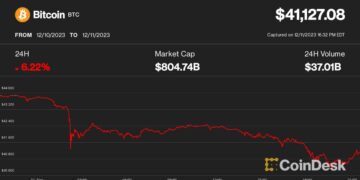
The government announced the interest rates applicable to small savings schemes for the quarter January-March 2024. For the period ending March 31, 2024, specific small savings schemes and post office schemes have witnessed an increase in their interest rates, as declared by the government. The finance ministry communicated this update through a circular released on December 29, 2023. (It’s important to note that one percentage point is equivalent to 100 basis points.) Despite these adjustments, the interest rate for the Public Provident Fund (PPF) remains constant at 7.1 percent.
Here is a look at the interest rates on various small savings schemes for the fourth quarter of FY 2023-24.
| Post office schemes interest rates for Jan-March 2024 | ||
| Instrument | Rates of interest from Oct-Dec 2023 (%) | Rates of interest from Jan-March 2024 (%) |
| Savings Deposit | 4 | 4 |
| 1 Year Time Deposit | 6.9 | 6.9 |
| 2 Year Time Deposit | 7 | 7 |
| 3 Year Time Deposit | 7 | 7.1 |
| 5 Year Time Deposit | 7.5 | 7.5 |
| 5 Year Recurring Deposit | 6.7 | 6.7 |
| Senior Citizen Savings Scheme | 8.2 | 8.2 |
| Monthly Income Account Scheme | 7.4 | 7.4 |
| National Savings Certificate | 7.7 | 7.7 |
| Public Provident Fund Scheme | 7.1 | 7.1 |
| Kisan Vikas Patna | 7.5 (will mature in 115 months) | 7.5 (will mature in 115 months) |
| Sukanya Samriddhi Account | 8 | 8.2 |
Source: Finance ministry circular
How the interest rates small savings schemes are set
The government routinely assesses the interest rates of small savings schemes on a quarterly basis. The methodology for determining these rates was proposed by the Shyamala Gopinath Committee. According to the committee’s recommendations, the interest rates for various schemes should range from 25 to 100 basis points above the yields of government bonds with corresponding maturities.
PPF interest rate
The interest rates of small savings schemes are linked to yields of 10-year Government Securities in the secondary market. There are set formulae for mark-ups over the previous three months’ average yield of relevant G-Secs of comparable maturity. The central government reviews the interest rates of small savings schemes every quarter based on the G-Secs yields of the previous three months. This is in line with the recommendations of the Shyamala Gopinath Committee, 2011 to ensure that the interest rates of small savings schemes are market-linked.As per the formula notified by the Finance Ministry in 2016, PPF interest rate in a given quarter has a spread of 25 basis points over the benchmarked yield of preceding three months. The benchmark 10-year bond yield has averaged 7.28% from September to October 2023, according to data from investing.com. Going by the formula, the interest rate of PPF will be 25 basis points higher than the average 10-year G-sec yield. So going strictly by this process, the PPF interest rate should ideally be around 7.53% for the January-March quarter.However, the Central Government has not raised the PPF rate despite the formula suggesting a higher rate in many previous quarters.
Last time interest rates were hiked
The interest rates of certain small savings schemes or post office schemes for the quarter ending December 31, 2023 were increased by the government. The interest rates of all schemes expect the recurring deposit rate have been kept unchanged. The interest rate on the Public Provident Fund (PPF) was kept unchanged at 7.1 per cent.
Since May 2022, the Reserve Bank of India (RBI) has implemented a series of key rate hikes. Consequently, banks have responded by elevating interest rates on fixed deposits (FD), offering a positive turn of events for FD investors who have experienced a prolonged period of historically low interest rates. However, in the most recent four policy meetings, the RBI has chosen to maintain a status quo by refraining from further adjustments to the key rates.
Due to this many banks have also gone slow on FD rate hikes, some have even cut rates.
FDs, bank savings accounts or small saving schemes?
Even though banks have started increasing FD interest rates, many small savings schemes are still earning higher interest rates.
SBI‘s FDs across 7 days to 10-year tenors, as on December 27, 2023, earn 3.5 per cent to 7 per cent. Senior citizens, who earn 0.5 per cent more, will get 4 percent to 7.5 per cent for these tenors.
Apart from fixed deposits, even the interest rates on savings accounts offered by some of the bigger banks is lower than the interest rate on the post office savings account.
Post office savings account is currently offering 4 per cent per annum whereas SBI is offering 2.70 per cent per annum interest rate on its savings account. Similarly, ICICI Bank is offering 3-3.5 per cent per annum.














